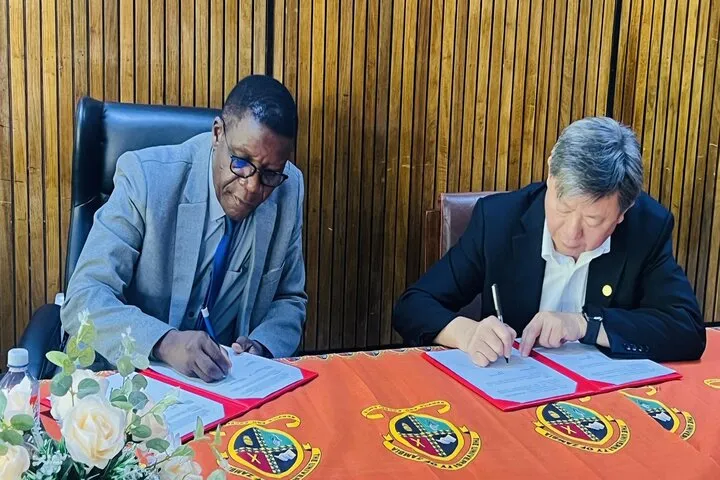
The University of Zambia (UNZA) and the University of Science and Technology Beijing (USTB) have established a landmark partnership by signing a Memorandum of Understanding (MoU) and launching a joint laboratory focused on the "Green and Safe Mining of Deep Mine Resources with Cemented Paste Backfill (CPB)."
The agreement, designed to tackle the pressing challenges of deep-level mining, marks a significant step in China-Africa scientific cooperation and is bolstered by financial support from China’s Ministry of Science and Technology and the China Nonferrous Metal Mining Group (CNMC).
Speaking at the ceremony, UNZA Vice-Chancellor, Professor Mundia Muya, stated that the collaboration would enhance research and innovation to address critical challenges in the mining sector. He confirmed the partnership would focus on developing new CPB-based technologies to overcome engineering difficulties in complex ore bodies, such as those in the Zambian-Congo Copperbelt.
“Through this joint effort, the universities seek to cultivate internationally-oriented professional talent,” Prof. Muya added.
Meanwhile, USTB President Yang Renshu described the collaboration as a future model for China-Africa higher education and scientific innovation, contributing to the high-quality development of the Belt and Road Initiative.
“UNZA is an influential university in Africa,” President Yang stated. “I firmly believe that through our joint efforts, cooperation between USTB and UNZA will bear fruitful results.”
He emphasized that the partnership is a direct response to the depletion of shallow ore bodies, which has pushed mining operations deeper, increasing safety risks and costs and thereby necessitating technological innovation.
The joint laboratory will facilitate academic exchanges, collaborative research, joint publications, and technical training for UNZA students. It builds on previous cooperation, including the first CPB system in Africa, introduced by CNMC and USTB at the Chambishi Copper Mine.
USTB brings significant expertise to this venture as a national key university with a focus on engineering. It has a history of training over 320,000 graduates, including 47 Chinese academicians, and maintains partnerships with over 270 institutions worldwide, with particular strength in the metallurgical and materials industries.
This partnership is seen as a new calling card for practical mining-sector cooperation between China and Zambia, aiming to make deep mining safer, more efficient, and more environmentally sustainable.
